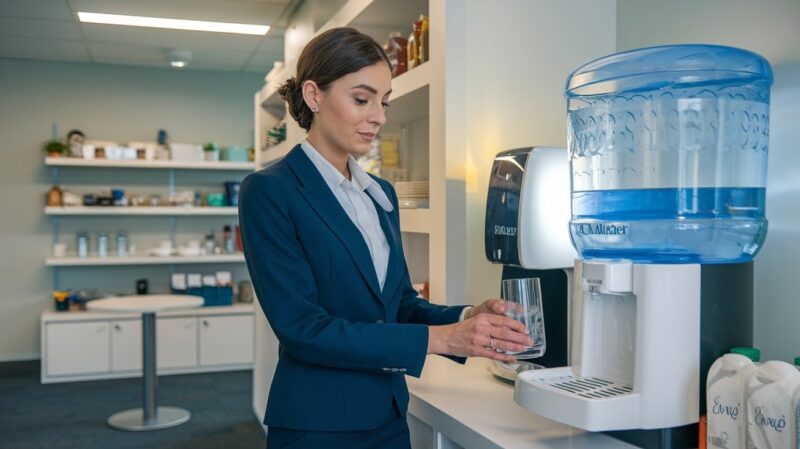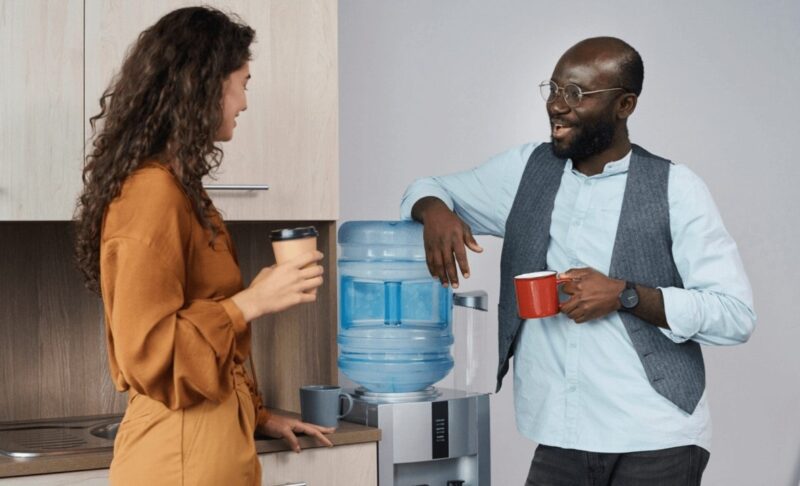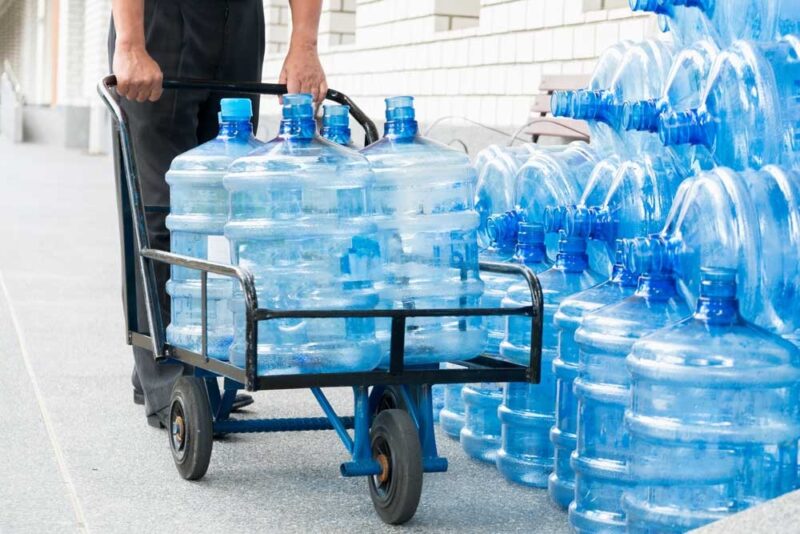It’s very important to choose a trustworthy water supplier for regular deliveries to the office. Since company-wide hydration and personnel health get impacted daily by the quality, sustainability, and accessibility of the drinking supply, selecting the right provider requires thorough vetting across several key indicators of reliability.
Quality and Purity Practices

Arguably the most critical qualification for any vendor supplying essential daily hydration to workplaces involves their standards, practices, and commitments regarding water quality assurance. With purification and contamination vulnerabilities abounding between remote source reservoirs and endpoint taps, achieving pure water free from pollutants, toxins, and bacteria depends entirely on a supplier’s vigilance and priorities throughout their supply chain.
When researching water delivery services, understanding their exact treatment methods and watchdog testing procedures provides the only way to verify actual safety, Drinkers deserve transparency regarding filters used, prevention steps against environmental toxin infiltration during transfers or storage, and the frequency of clinical purity analyses performed.
Additionally, sourcing from protected underground spring reservoirs or other high-integrity origins right from the start allows vendors to safeguard native water composition before purification steps become necessary. Choosing an office provider partnered with sustainable spring sources through direct bottling practices provides an extra layer of upstream quality control compared to municipal tap water contributors.
Functionality of Delivery Process

Provider reliability also depends on their ability to consistently supply the right amount of water for the specific needs of the workplace and its employees. Instead of forcing a rigid prearranged delivery schedule, the most reliable suppliers remain attentive and adaptable based on real-time order volumes communicated directly from worksites to align supply and demand.
Streamlined reordering processes integrated digitally into company systems allow office managers to directly indicate inventory needs based on consumption rates and workforce size. Quality providers then rapidly fulfill requests through responsive routing algorithms and logistics designed around catering to variable office requirements.
Sustainability Infrastructure
As societal attention continues shifting towards ecological impact and conservation initiatives across every industry, assessing water supply vendors based on their sustainability infrastructure has become vital for ethically minded employers.
Truly reliable, conscientious suppliers like Alive Water build fundamental operations around green practices and materials whenever feasible. For example, their recyclable glass bottles delivery service is much more eco-friendly than relying on single-use plastic jugs that fill landfills and leach toxins over time.
Employers wanting accountability regarding the ecological footprint of their workplace water delivery service should determine exactly how invested prospective vendors are in tangible conservation and stewardship practices before solidifying a partnership.
Safety and Health Compliance

For employers unwilling to compromise when it comes to safeguarding personnel against avoidable harm, analyzing water suppliers based on safety plus health regulation compliance provides a non-negotiable assessment benchmark.
Whether through government mandated analysis standards, independent third party quality certifications, routine facility sanitation audits, employee training procedures, contamination incident transparency protocols, or other concrete accountability metrics, water delivery services hoping to secure reliable B2B contracts must verify an unwavering culture of health and safety anchored in evidence and accountability.
Dialing in delivery variables around optimizing access convenience and consumption volume means little if the actual water purity remains uncertain or personnel get exposed to preventable risks somewhere along the supply chain. Checking safety compliance boxes through accountable quality practices separates genuinely reliable partners from those simply going through the motions.
Conclusion
Evaluating drinking water suppliers provides the most balanced assessment approach for employers aiming to protect organizational and individual wellbeing through daily hydration. Using these key indicators of reliability as vetting criteria sets a high bar that fosters transparency and nurtures trust in the vital service of fueling workforce health via pure, refreshing water always.


